Sustainable landscaping is a method of designing, building, and managing outdoor spaces that is environmentally friendly and resource efficient. The goal is to create unique, healthy landscapes that are not only beautiful but also beneficial for the environment. This approach is particularly important in Western North Carolina, where the natural beauty of the mountains can be preserved through thoughtful, sustainable practices. At B. H. Graning Landscapes, Inc., we are committed to finding new and effective ways to create sustainable, native landscapes for our customers.
Why Choose Sustainable Landscaping?
Sustainable landscaping offers a range of benefits. It conserves water, reduces the need for chemicals, and promotes biodiversity through the use of native plants. Additionally, these practices minimize the environmental impact of landscaping and offer economic advantages, such as increased property value and reduced maintenance costs. Perhaps most importantly, sustainable landscaping contributes to the health of the local ecosystem, supporting the natural beauty that makes Western North Carolina special.
Sustainable Landscape Practices
There are several key practices that homeowners in Western North Carolina can adopt to create a more sustainable landscape:
- Choosing Native Plants
Using native plants is crucial to sustainable landscaping because they require less water, fertilizer, and pesticides. Plants like hydrangea, bee balm, Carolina lupine, butterfly weed, and southern magnolia are well-suited to the local climate and soil conditions. They are drought-tolerant, attract local wildlife, and are relatively low-maintenance. By selecting native plants based on the specific conditions of your property—such as sun exposure, soil type, and elevation—you can create a thriving, beautiful garden that requires minimal intervention.
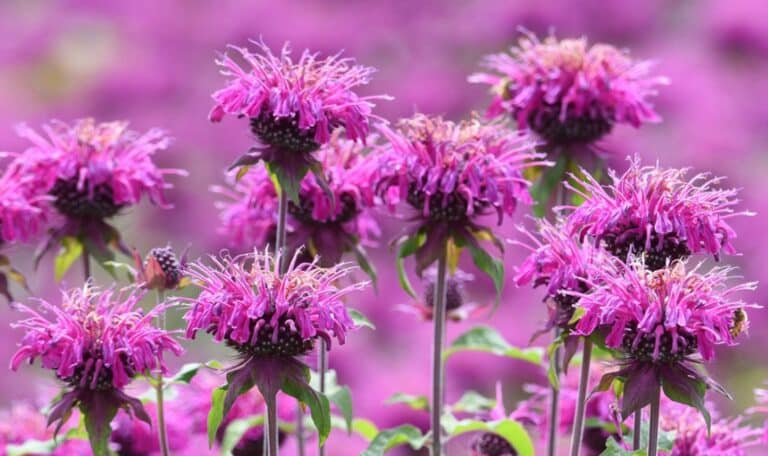
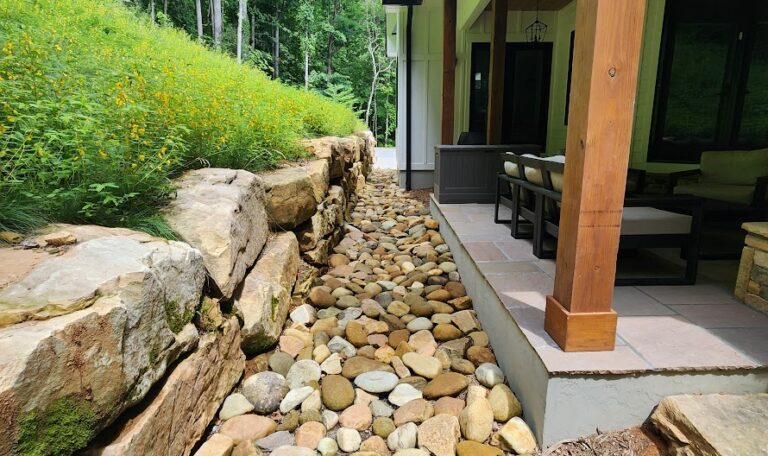
- Water Conservation Techniques
Water conservation is an essential part of sustainable landscaping. There are several effective methods to reduce water usage, including installing rain barrels, using drip irrigation systems, and planting drought-resistant plants. Additionally, applying mulch or pine straw can help retain moisture in the soil. In Western North Carolina, the use of rain gardens, swales, and dry creek beds are especially beneficial for managing runoff on sloped terrain. These solutions not only conserve water but also help protect the surrounding environment from erosion.
- Reducing Chemical Use
Minimizing the use of synthetic chemicals is another key component of sustainable landscaping. Opting for organic fertilizers, avoiding pesticides, and using natural pest control methods can lower the risk of environmental pollution. These practices protect local water sources, support beneficial insects and pollinators, and help maintain a healthy soil ecosystem. Healthier soil results in stronger plants, which in turn are more resistant to pests and diseases.
- Using Sustainable Hardscape Options
Hardscaping features such as patios, pathways, and retaining walls can be designed with sustainability in mind. Consider using permeable pavers, reclaimed stone, or wood for your hardscaping projects. At B. H. Graning Landscapes, Inc., we prioritize using locally sourced materials to reduce transportation emissions and support the regional economy. Sustainable hardscaping not only looks beautiful but also aligns with eco-friendly values.
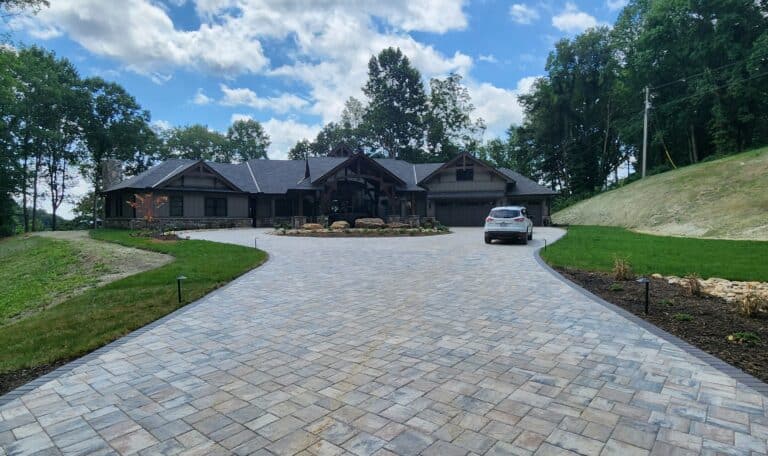
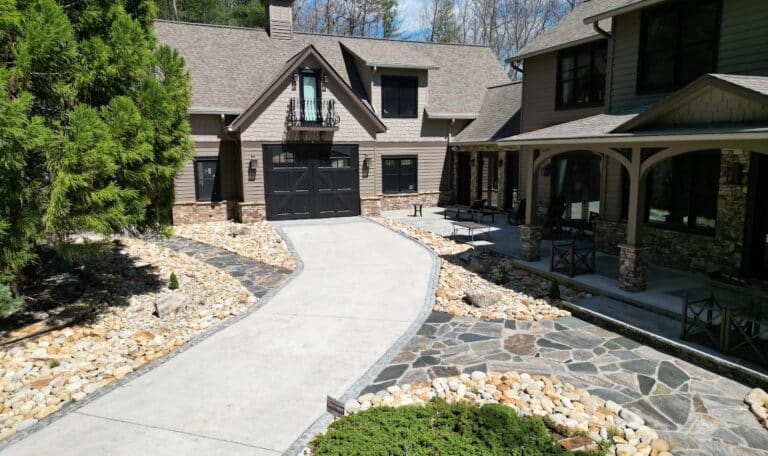
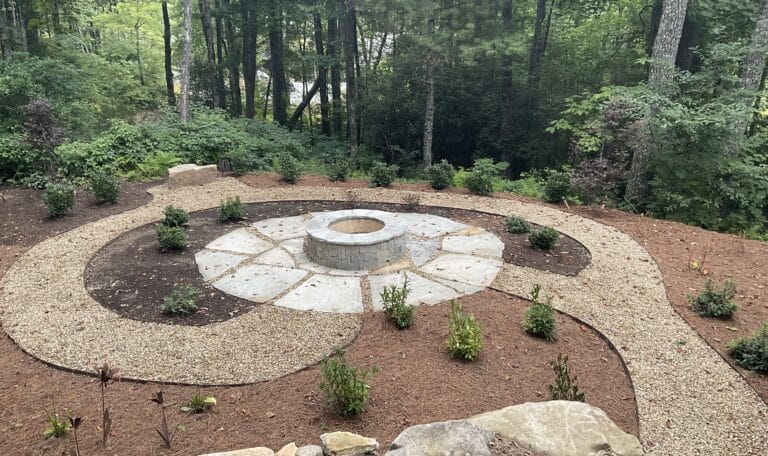
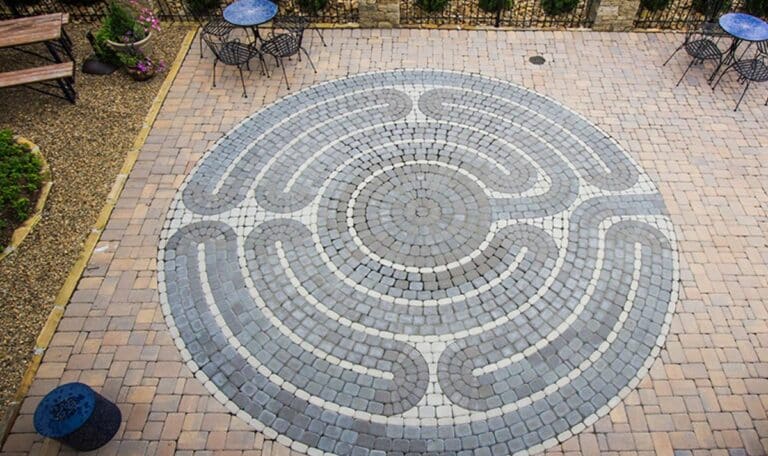
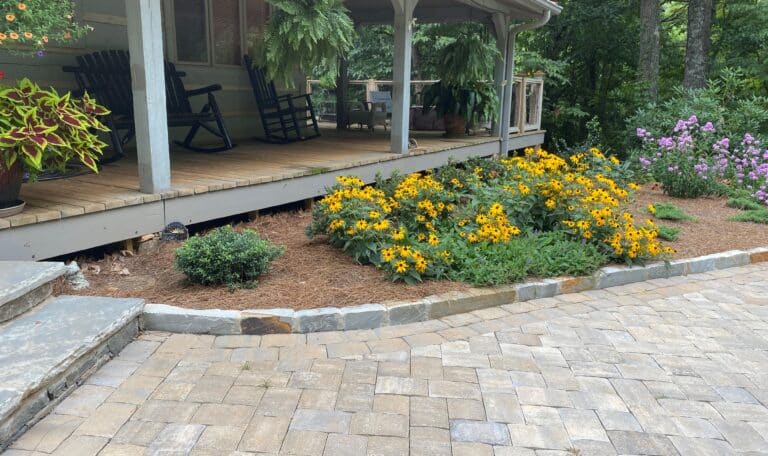
- Edible Softscape Options
Incorporating edible plants like apple and pear trees or blueberry bushes into your landscape is a great way to enhance sustainability while enjoying fresh, organic produce. These plants thrive in the Western North Carolina climate and support local biodiversity by attracting pollinators. Edible gardens and orchards not only reduce your reliance on store-bought produce but also add a functional and beautiful element to your yard, blending sustainability with the benefits of homegrown food.
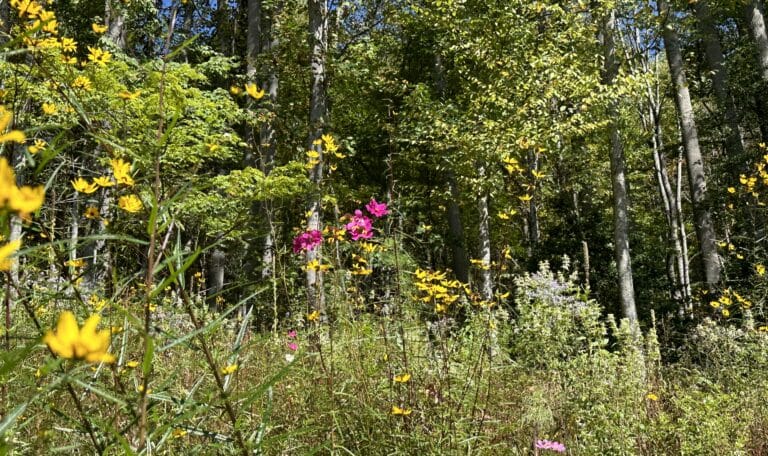
- Promoting Biodiversity
A diverse landscape is a resilient landscape. To promote biodiversity, consider planting a variety of trees, shrubs, and grasses that provide food and shelter for local wildlife, including pollinators, birds, and beneficial insects. Leaving parts of your yard “wild” or planting species that attract butterflies and bees can create a wildlife-friendly haven right in your backyard. This approach contributes to a healthier ecosystem and creates a natural, dynamic outdoor space.
- Composting for Healthy Soil
Maintaining healthy soil is crucial for sustainable landscaping, especially in the mountainous regions of Western North Carolina. Composting is a natural way to enrich soil with nutrients, improve water retention, and reduce erosion. By adding organic compost to your garden, you can enhance the fertility and structure of the soil, supporting healthier plants and a more resilient landscape.
- Planting Trees for Long-Term Benefits
Trees are a vital part of sustainable landscaping. They absorb carbon dioxide, improve air quality, reduce stormwater runoff, and provide habitats for wildlife. In addition, trees can lower home energy consumption by providing shade in the summer and windbreaks in the winter. Planting trees strategically can offer long-term benefits, from creating a beautiful landscape to contributing to a healthier climate.
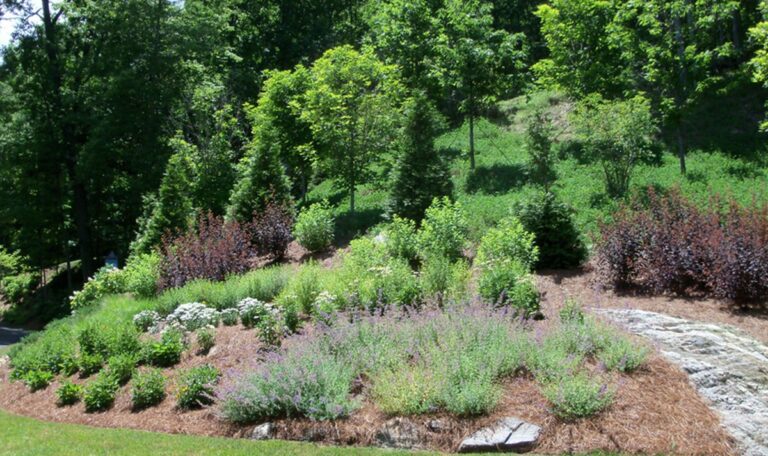
- Designing for Energy Efficiency
Thoughtful landscape design can also help homeowners save on heating and cooling costs. By planting deciduous trees on the south side of a home, for example, you can provide shade during the summer while allowing sunlight to warm the house in winter. Taking advantage of the natural topography in Western North Carolina can enhance the energy efficiency of your home while creating a harmonious connection with the surrounding landscape.
Professional Services and Support
Sustainable landscaping is not just a trend—it’s a long-term commitment to preserving the natural beauty of Western North Carolina. It offers both environmental and economic benefits, from improving local ecosystems to lowering your maintenance costs. At B. H. Graning Landscapes, Inc., we are here to help you take the next steps toward a sustainable landscape that fits your unique needs and vision.
Whether you’re looking to start small or embark on a larger project, our team can assist with consultations, design, and implementation of sustainable landscaping solutions. Contact us today for a personalized consultation and discover how you can transform your outdoor space into a sustainable haven. Together, we can create landscapes that are as kind to the environment as they are beautiful.

